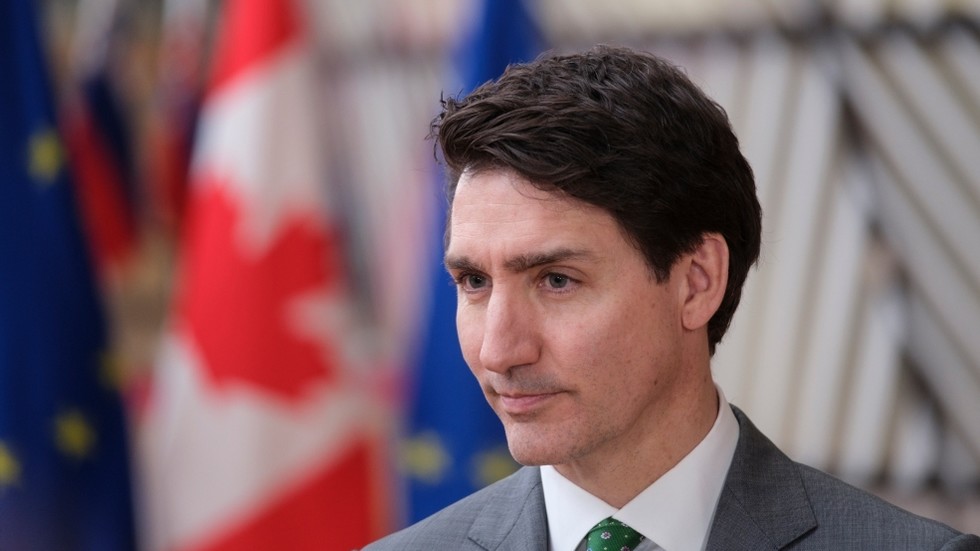Trudeau Condemns Trump’s Tariffs as Economic Missteps
In a recent and sharp critique, Canadian Prime Minister Justin Trudeau has taken a firm stance against the tariffs imposed by former President Donald Trump, asserting that these economic measures have not only harmed Canadian interests but have also adversely affected the U.S. economy. This clash of leadership serves as a critical reflection of the ongoing tensions between Canada and the United States regarding trade relations, a topic that continues to evolve post-Trump’s administration.
The Context of Tariffs in North America
Tariffs, essentially taxes imposed on imported goods, can be wielded as tools of economic policy, often to protect domestic industries. However, the implementation of such tariffs can lead to a cascade of unintended consequences. When Donald Trump assumed the presidency in 2017, he initiated a series of tariffs targeting various products, particularly focusing on steel and aluminum, citing national security concerns. Trudeau’s government, however, viewed these tariffs as an attack on Canada’s economy and a distortion of free trade principles.
In response to Trump’s tariffs, Trudeau remarked, “Tariffs are a tax on Canadian families and businesses, making it harder for them to succeed.” His statement underscores a critical perspective on how tariffs can lead to increased costs for consumers and disrupt supply chains essential for both nations.
The Economic Implications of Tariffs
Trudeau’s condemnation of Trump’s tariffs is rooted in a broader understanding of economics and trade dynamics. Here are several key implications:
- Increased Costs: Tariffs typically result in higher prices for imported goods. For Canadian consumers and businesses reliant on American products, this translates to increased expenses, which can stifle economic growth.
- Retaliatory Measures: Trump’s tariffs prompted Canada to impose its own tariffs in retaliation, leading to a tit-for-tat scenario that harmed various sectors, especially agriculture, where Canadian farmers faced challenges in exporting goods to the U.S.
- Impact on Industries: Industries that rely on cross-border supply chains, such as automotive manufacturing, have been particularly affected. The imposition of tariffs disrupts the flow of materials and components critical to production processes.
Trudeau’s Broader Economic Vision
Trudeau’s critique goes beyond mere opposition to tariffs; it reflects his vision for a collaborative economic future between Canada and the United States. He advocates for a trade environment characterized by mutual benefit rather than confrontation. In his speeches, he often emphasizes the importance of partnerships and collective growth.
“We need to work together to build a better economy for everyone,” Trudeau stated, suggesting that the path forward lies in cooperation rather than division. This perspective is essential for addressing the challenges brought about by economic policies that prioritize isolationism over integration.
The Political Landscape
The ongoing tensions surrounding tariffs also reveal the political landscape within both countries. In the U.S., Trump’s approach to trade resonated with many voters who felt left behind by globalization. However, Trudeau’s counter-narrative emphasizes the importance of global interdependence, where trade agreements and partnerships lead to shared prosperity.
Trudeau’s stance is indicative of a broader political philosophy that prioritizes diplomacy over punitive measures. His government has sought to engage in trade negotiations that foster goodwill and economic opportunities, such as the United States-Mexico-Canada Agreement (USMCA), which replaced the North American Free Trade Agreement (NAFTA). While Trudeau’s administration has faced its own challenges, particularly during the COVID-19 pandemic, his commitment to maintaining strong trade relations remains steadfast.
Future of Canada-U.S. Trade Relations
As the global economy continues to navigate complexities arising from the pandemic and geopolitical tensions, the future of Canada-U.S. trade relations remains a critical topic. Trudeau’s condemnation of Trump’s tariffs highlights the necessity for both nations to reassess their trade strategies in light of shared interests.
Looking ahead, several key areas warrant attention:
- Supply Chain Resilience: Strengthening supply chains between the U.S. and Canada can mitigate the risks posed by tariffs and other trade barriers. Collaborative efforts could lead to more resilient economic structures.
- Sustainability Initiatives: Both nations are increasingly focusing on sustainability and climate change. Joint initiatives in green technology and sustainable practices could pave the way for a new era of trade relations.
- Digital Trade: With the rise of the digital economy, enhancing trade agreements to encompass digital services and e-commerce will be crucial for future economic collaboration.
Conclusion
In summation, Trudeau’s condemnation of Trump’s tariffs serves as a poignant reminder of the delicate balance required in international trade relations. While tariffs may be employed as economic tools, their ramifications often extend far beyond initial intentions, impacting consumers, businesses, and entire economies.
As Canada and the U.S. move forward, fostering a spirit of collaboration and mutual benefit will be essential. Both nations stand to gain significantly by prioritizing diplomacy over division and recognizing the interconnectedness of their economies. The ongoing dialogue around tariffs and trade policies will undoubtedly shape the economic landscape for years to come, making it imperative for leaders to champion approaches that promote shared prosperity.
Ultimately, as we navigate these turbulent waters, it is clear that constructive engagement and a commitment to understanding the complexities of trade will serve both nations best. Trudeau’s insights into Trump’s economic missteps are not just criticisms; they are calls to action for a more unified and resilient North American economy.
See more BBC Express News

